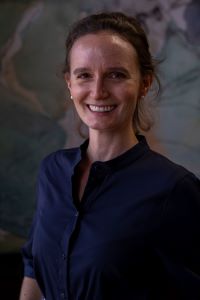About AATF
AATF works to provide farmers in Sub-Saharan Africa (SSA) with practical technology solutions to overcome farm productivity constraints and improve livelihoods. Founded in 2003, AATF is driven by the vision of a prosperous, resilient, food and nutrition-secure Africa, where the livelihoods of smallholder farmers are transformed through agricultural innovations. Active in 24 countries in East, Southern and West Africa, AATF is one of the continent’s foremost technology transfer organizations trusted by both private and public sector institutions over the past two decades. AATF’s work goes beyond product development to include commercialization and scaling of demand-driven technologies for sustainable development.
Background and context
The OFAB Africa Media Awards (OMAs), now in its 8th year, recognizes exemplary journalism that promotes best practices in science reporting, with a focus on agricultural biotechnology. The OMAs rewards journalism that exhibits professionality and fosters public understanding of science and modern agricultural biotechnology. Held annually, the awards showcase exemplary contribution of journalists from OFAB chapters in ten countries: Kenya, Uganda, Tanzania, Ethiopia, Nigeria, Ghana, Burkina Faso, Rwanda, Mozambique, and Malawi.
Objective of the Evaluation Process
To evaluate outstanding print and online articles, aired radio and broadcasted television stories covering the field of agricultural biotechnology, ensuring fair and transparent judgment of the entries submitted across all categories and train journalists on science communication.
OMAs specific objectives is:
- To promote excellence in biotechnology journalism and appreciate the contribution of journalists in promoting sustainable agricultural transformation in Africa.
- To celebrate the critical roles played by journalists in promoting evidence based and information on modern biotechnology in Africa.
Scope of work
Evaluate media award submissions based on pre-established criteria focusing on agricultural biotechnology discoveries, product development, technology impacts on livelihoods/economies, biotech projects, opportunities, challenges, and regulatory policies in Africa ensuring that all entries are judged fairly, transparently, and without bias.
Specific accountabilities for the assignment
- Independently review all eligible media entries submitted under their assigned categories.
- Assess each entry based on the outlined judging criteria using provided metric tools.
- Provide clear, objective feedback and scoring justification for each entry.
- Participate in the final selection of winners and runners-up for each category.
- Maintain confidentiality and professionalism throughout the evaluation process.
Deliverables
- Analysis of entries and justification for winners in the Print, Online, Radio, and Television categories.
- Development of tools to evaluate various entries.
- Judges’ speech to announce winners, including justification for why each winner was selected.
- Analysis of training needs to better equip journalists for future competitions.
- Train recipients of the award on advanced science communication
Qualification of the judges
| Education: | A minimum of undergraduate degree in Journalism, communications, Public Relations, or equivalent academic credentials. |
| Experience: | Ability to provide leadership during the evaluation process, bring in knowledge, expertise, and journalistic experience on how media and communication can best support individual journalists and audiences to improve understating of biotechnology reporting in a development context. Ability to help and mentor upcoming science reporters to best package news, access news sources and make sense of technical language into simple media outputs that can be disseminated as news items. Experience judging media awards in OFAB countries. |
| Language requirements: | Fluency in written and spoken English. Working knowledge of French and Portuguese would be an added advantage. |
Application Criteria and timeline:
Application Criteria
- Judges profile including CVs aligned to the proposed scope of the assignment.
- Three references (with contact information) from previous clients.
- Samples of work previously evaluated.
Timelines
The process- from start to finish- is expected to take 2 weeks for completion from the awarding of the contract.
Remuneration:
AATF will compensate the judges at a rate consistent with market standards, providing a sum of USD 1,500 inclusive of applicable taxes after the completion of the judging process.
Submission
A full package of the proposal should be sent to: procurement@aatf-africa.org no later than 11th November 2024, with the subject line “OMAs 2024 judge.”
Evaluation and Award of the Consultancy:
AATF reserves the right to request new or additional information regarding each service provider and any individual or other persons associated with its project proposal. AATF reserves the right not to make any appointment from the proposals submitted.
Service providers shall not make available or disclose details pertaining to their Project proposal with anyone not specifically involved, unless authorized to do so by AATF. Service providers shall not issue any press release or other public announcement pertaining to details of their project proposal without the prior written approval.
AATF Service providers are required to declare any conflict of interest they may have in the transaction for which the tender is submitted or any potential conflict of interest. AATF reserves the right not to consider further any proposal where such a conflict of interest exists or where such potential conflict of interest may arise.
Confidentiality statement
All data and information received from AATF for the purpose of this assignment are to be treated confidential and are only to be used in connection with the execution of these Terms of Reference. All intellectual property rights arising from the execution of these Terms of Reference are assigned to AATF.
AATF undertaking
AATF and OFAB will be responsible for collating applications from journalists ahead of the evaluation, preparing templates that judges will use to evaluate the news items, liaise with country contacts to do translations as well as share news pieces in a format that is accessible to all judges.


















































































